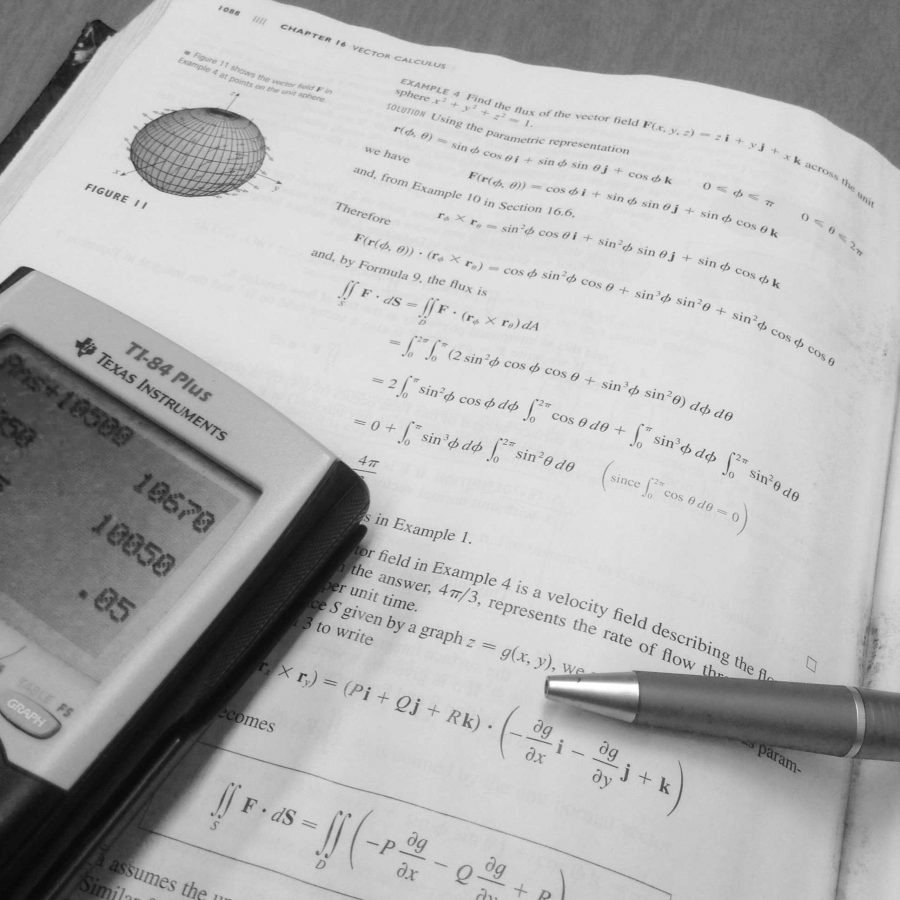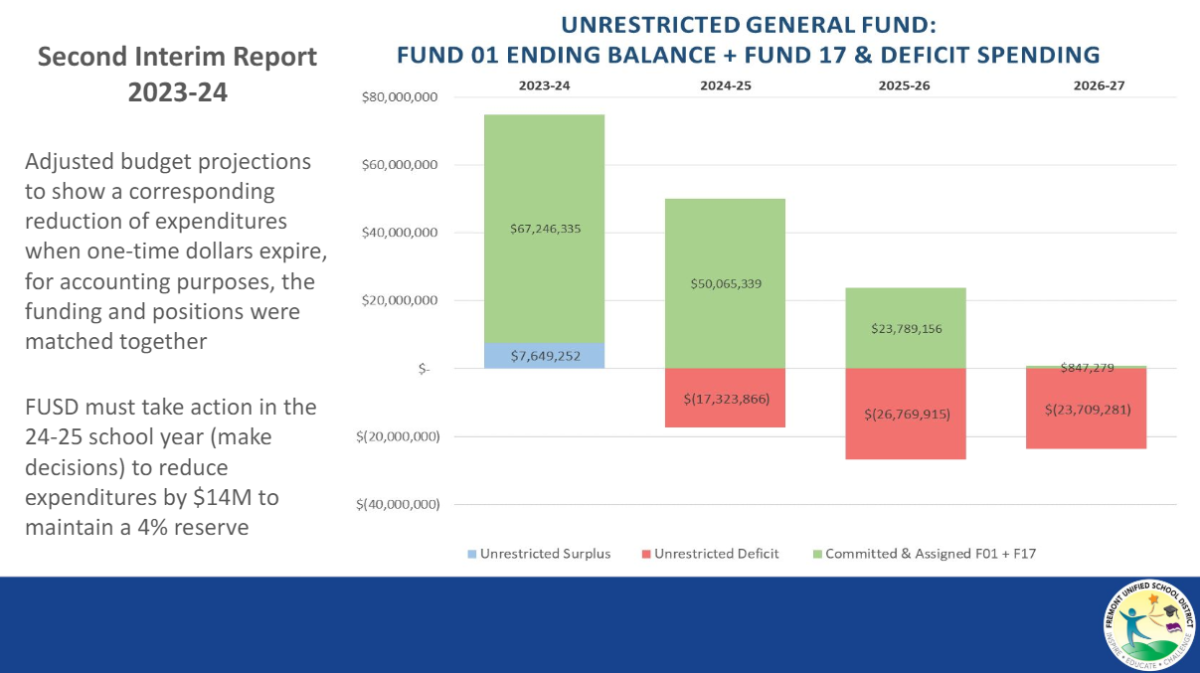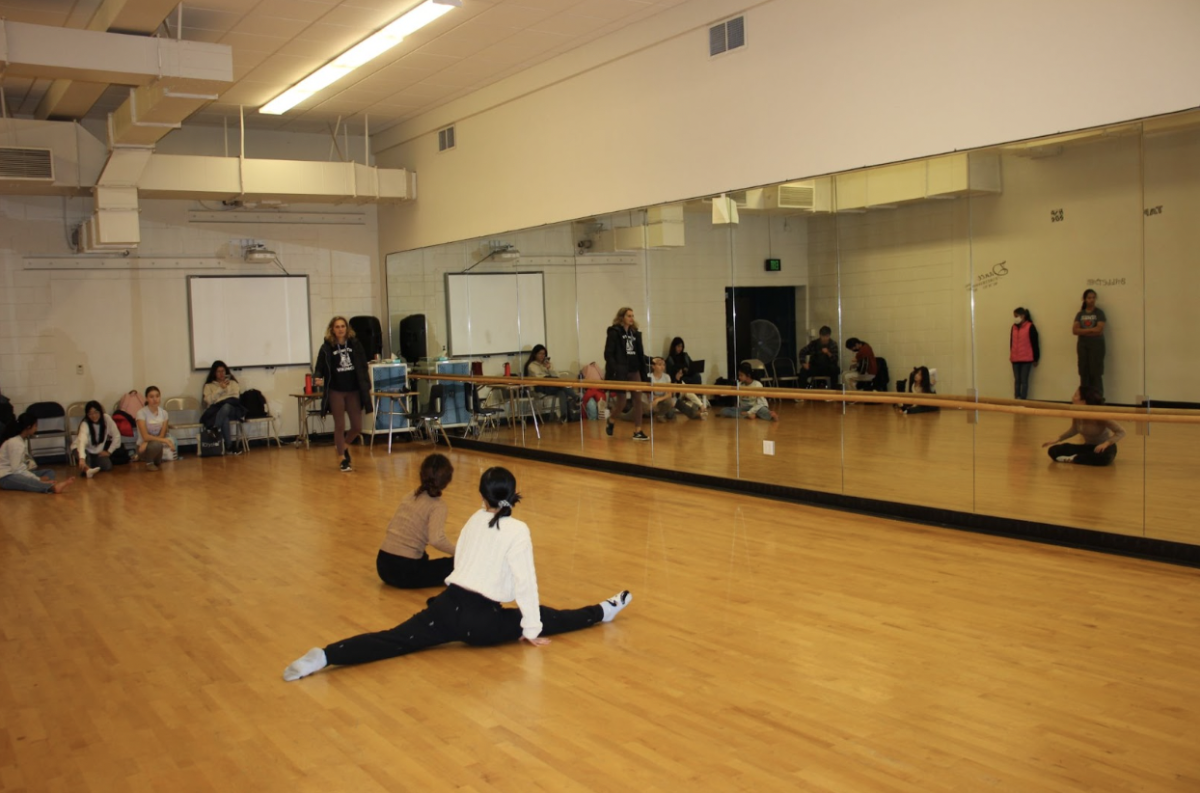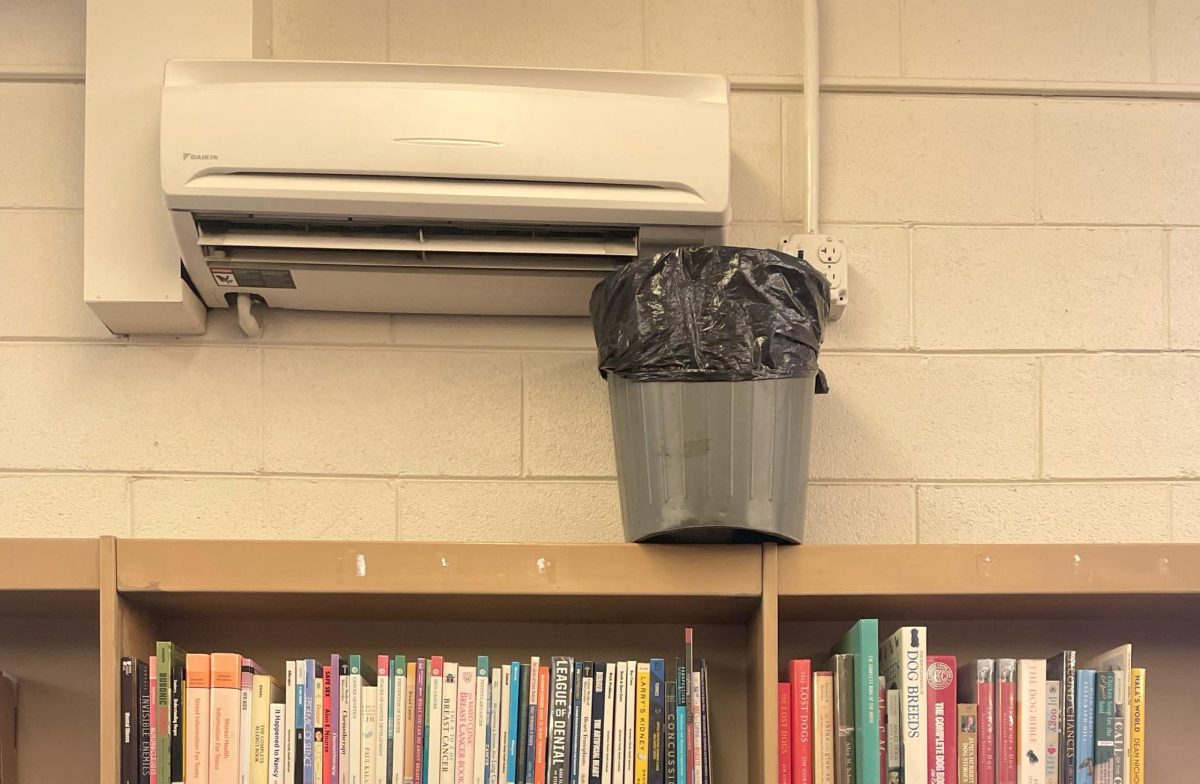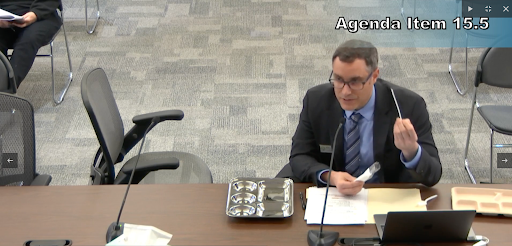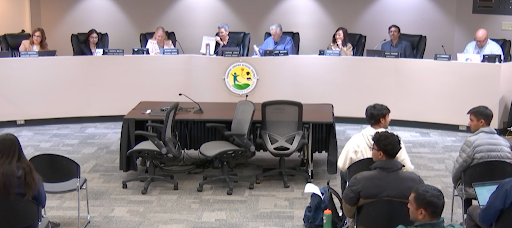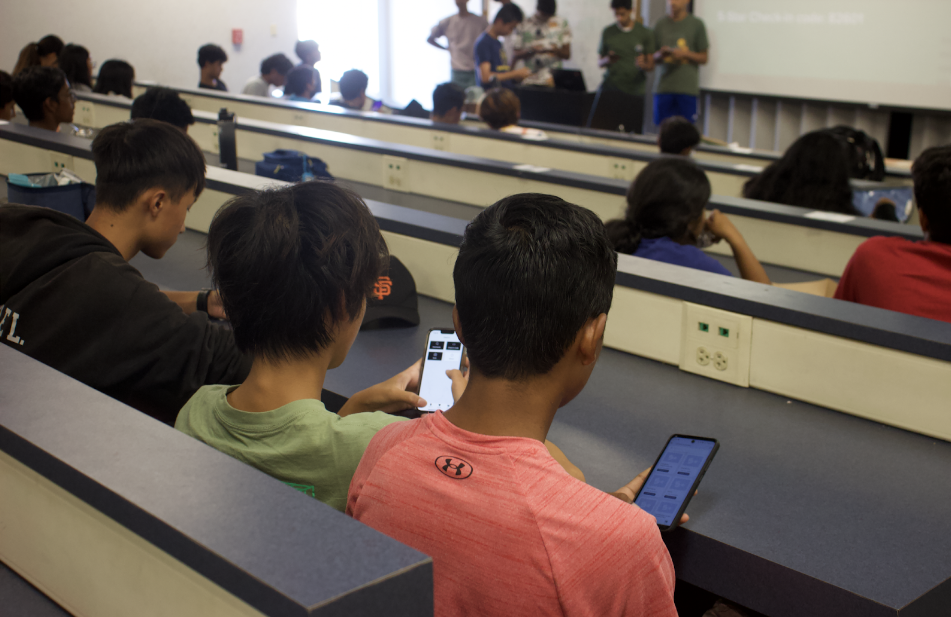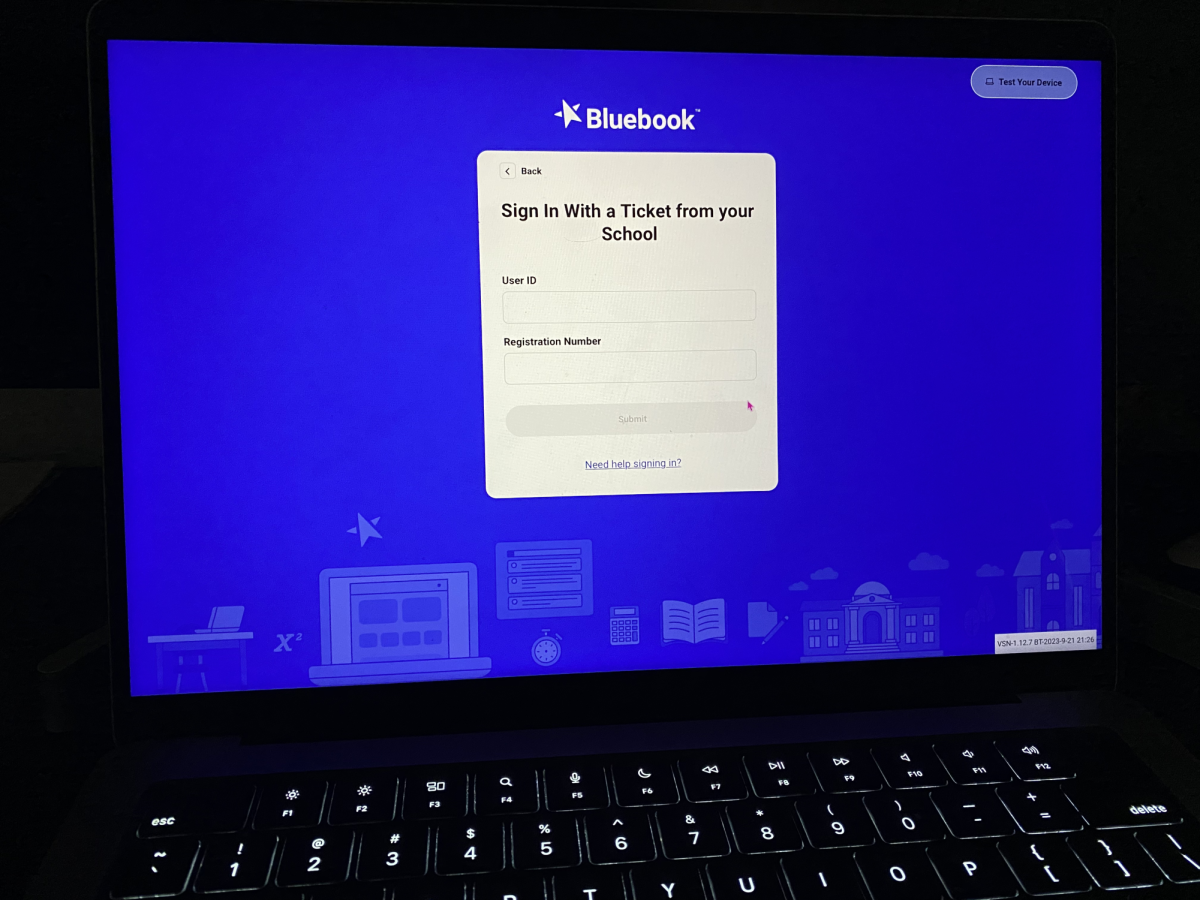AP Physics C, AP Calculus BC, Multivariable Calculus/Linear Algebra could be casualties of district course cap
By Karthik Mayilvahanan | Editor in Chief
Weeks after students completed course sign-ups for the 2014-15 school year, Principal Sarah Smoot must compile a list of courses to be offered next year. Handicapped by a district limit on the number of courses she can offer, Ms. Smoot has big decisions to make with regards to what courses will and will not return in the fall of 2014, and under the axe are three of the most challenging courses currently offered at Irvington: AP Calculus BC, AP Physics C, and Multivariable Calculus/Linear Algebra.
“We have to have a certain number of students enrolled in a class to be able to offer it. If it doesn’t meet that threshold number of students we need, we cannot offer that section,” explained Counselor Leticia Velazco. “We just don’t have the luxury to offer a class if its not up to capacity in terms of enrollment. In terms of practicality and resources, and because we have a limited number of teachers and facilities, we have to be able to accommodate students in the majority of the classes.”
According to Ms. Smoot, that threshold number of students varies, generally between 20 and 25 students. As of April 3, AP Calculus BC, AP Physics C, and Multivariable Calculus/Linear Algebra have 14, 18, and 12 students enrolled, respectively.
Students currently signed up for these classes are upset that their peers are not challenging themselves academically. “I think the problem is that not enough students are taking difficult classes,” said junior Rohan Kumar, who hopes to take AP Calculus BC next year. “People are too concerned with their grades, and many people I know are taking AP Calculus AB for the grade, but taking the Calculus BC AP test.”
In fact, according to Account Clerk Julie Menke, who oversees AP testing sign ups, 76 students are signed up for the AP Calculus BC test this year, while only 26 students are enrolled in the class, indicating that several students in AP Calculus AB class are taking the AP Calculus BC test.
“I feel that it’s important for students to take these classes so that they have develop and improve their problem solving skills early on, before they enter college,” added junior Michael Meng, who signed up for AP Physics C and Multivariable Calculus/Linear Algebra.
“Multivariable Calculus and Physics C are really some of the hardest courses at Irvington, and I think they both help motivate and encourage students to push themselves academically and personally. Cutting those two courses would make practical sense, but it’s worth considering whether it’s worth downgrading Irvington’s academic rigor,” said a student who signed up for both courses but asked to remain anonymous. “Even as an arts magnet school, Irvington should remain a place where both STEM and humanities can thrive. We should offer courses that challenge and inspire students no matter where their interests lie.”
Dr. Shankar Kumar, who teaches AP Physics C and Multivariable Calculus/Linear Algebra, argued that the removal of these courses could have a significant impact in the college admissions process. “This does not bode well for college applications,” said Dr. Kumar. “Whether or not you like it, you do get compared with students who have taken these classes and to that extent it will be a negative.”
College and Career Counselor Linda Kimmel disagreed, noting that if the courses were not offered, admissions officers could not hold it against Irvington students. “If we don’t have those classes, there’s no way they can compare [Irvington students] with students who do have the opportunity to take all those classes,” said Ms. Kimmel.
One of the big factors that will help Ms. Smoot on her decision is the drop rate of each class. “If we look at a pattern of two to three years within a class and we see a drop off of students, of 4-5 students, we know by the end of the semester there will be that many fewer students in that class,” said Ms. Smoot. “That factors into what the threshold is for offering the class.”
With the final decisions fast-approaching in May, Ms. Smoot has notified students signed up for these classes. These students, with the support of Mr. Kumar, are working on lobbying their peers to take on the challenging courses to save the classes.


